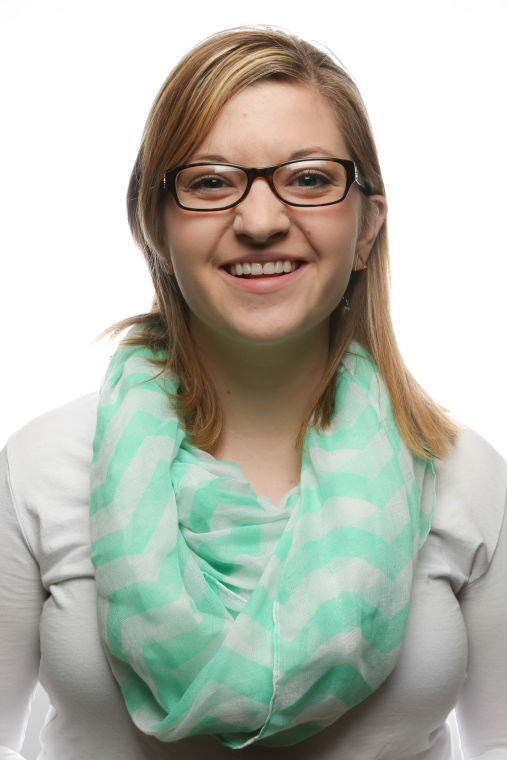Check yourself and inspect yourself
Oct 7, 2014
October is one of my favorite months. It is a turning point in the seasons, ushering in the orange, crunchy leaves and, obviously, the PSL (pumpkin spice latte, duh).
However, October is even more important for another reason: It’s national Breast Cancer Awareness Month.
This is an event that is celebrated everywhere. In my hometown, the football players would wear pink socks for every game.
It’s a month where we talk about, even publicize breast cancer, but don’t really talk about diagnoses. We talk about those who died, those who are dying and those who have survived breast cancer. We don’t usually talk about the preemptive, or how to prepare and look out for yourself.
If you read the recent article on the topic by The Daily Illini, you know that about one 1 in 8 women in the United States will develop invasive breast cancer. Every woman has around a 3 percent chance of dying of breast cancer.
Get The Daily Illini in your inbox!
In the face of these statistics, it’s clear that self-checks for breast cancer, and all types of cancer, should become an important part of our lives — for both males and females.
But do you know how to check yourself for cancer? Do you know when to check or how often?
There are actually many different checks for cancer that we can do ourselves. Some of these include checking your breasts, your skin and, for males, your testicles.
Chances are, if I sit here and type out all of the different steps of checking yourself, you might get uncomfortable.
For some reason, reading about these procedures, hearing young people say they do self-checks of any kind, or thinking about examining yourself, brings about a feeling of awkwardness. It might be out of fear that you’ll find something you don’t want to find, or some might just find self-checks unnecessary and silly.
I don’t really care about the awkwardness.
If checking out moles once a month for changes followed by checking breasts for lumps constitutes as weird, that’s OK. I’ll be pretty relieved if one day it ends up saving my life.
So, let’s prepare.
They say that about 60,000 young adults are diagnosed with cancer each year. Further, 9,000 young adults die from cancer each year and it is the fourth leading cause of death among our age group.
As a result, we should do regular examinations to check for various types of cancer.
Even if we don’t find anything now, it’s about forming a habit. Get acquainted with your body now, so that you can recognize changes later.
So here are some things that we need to know.
For the ladies, if you’re doing a self-check for breast cancer, you’re looking for a lump, which accounts for about 40 percent of diagnosed breast cancer. The problem is that lumps can be common and benign, so they need to be addressed by talking to your doctor and having a mammogram. The National Breast Cancer Foundation has clear and helpful guidelines about how to give yourself an exam.
Next, and this applies to everyone, let’s talk about skin cancer.
With all of the tanning salons on campus and with the encroaching winter, you know that these places will be bringing in business soon.
If you’re going to go tanning (or if you’re going to be a regular lazy college kid who walks around in the sun without sunscreen), know the consequences and how to take care of yourself if something looks amiss.
Skin cancer is the most common type of cancer and it can occur at any age. Only you really know your body, so become acquainted with moles and spots on your skin and closely monitor any changes. If you do notice changes, contact a doctor immediately.
Lastly, guys, learn how to check for testicular cancer. Like breast cancer, which you can also have and check for, testicular cancer may present itself as a lump or through swelling that you should be able to feel yourself.
After puberty, you should be doing these checks monthly and see a doctor right away if you notice something suspicious. You should also make sure that this is a part of any routine check-up you have with your doctor.
As uncomfortable as talking about these self-checks are, it’s foolish to overlook cancer and pretend like it isn’t imminent.
So this month, Breast Cancer Awareness Month, try to make it a time to start checking yourself — and make a habit out of it.
As scary as it is, cancer may be in some of our futures, presents and pasts. Pretending it isn’t an issue, no matter how young we are, is part of the issue itself.
Emma is a sophomore in LAS. She can be reached at [email protected].






